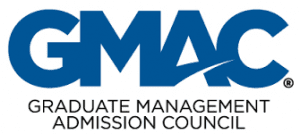No GMAT? Check Out Some of Our Favorites Schools that Offer Waivers

Applying to MBA programs can be a labor intensive and overwhelming task, and one may wonder how necessary it is to add the GMAT to an already lengthy to-do list. It’s important to note that the GMAT helps admissions boards to efficiently gauge a student’s overall readiness for the MBA in comparison to other applicants, regardless of the rigor of their undergraduate work. Also, b-schools use the average GMAT of successful applicants in order to bolster their rankings in certain publications. Some programs do, however, accept GMAT waivers.
Here is a look at some top schools that do not require GMAT scores, along with a summary of their waiver requirements.
The Rutgers Business School offers MBA students to forego the GMAT or GRE if they have eight or more years of professional experience and an undergraduate GPA of 3.0 or higher. Students with a Master’s degree and at least five years of full-time work experience may also apply without taking the GMAT.
La Salle University has several possibilities for students who have not taken the GMAT. Potential MBAs can obtain a waiver if they have graduated from an AACSB-accredited school with a minimum cumulative GPA of 3.2; a minimum GPA of 3.0; and three years of work experience. La Salle’s MBA program director evaluates each applicant’s work experience to determine whether the waiver may be granted.
Applicants with a CPA license or a CFA Charter may also apply without the GMAT, as may those with a Ph.D. or a Master’s degree or higher from an accredited institution. A cumulative GPA of 3.0 or higher is required for applicants with a Master’s degree.
LaSalle also has a ‘qualified admission’ option in which a student with two years’ work experience and a GPA of 3.0 or higher from an accredited school can waive the GMAT requirement. Qualified students may take up to four MBA courses, and with an overall GPA of 3.3, will not be required to take the GMAT. ‘Conditional Acceptance’ is also an option, in which a limited number of students are admitted for one semester, but then must take the test in order to remain enrolled and gain financial aid eligibility.

University of Delaware’s Lerner College of Business and Economics gives waivers to MBA students if they possess a terminal degree (Ph.D., MD, or JD, for example) or if they have four or more years of professional experience at the full-time level. Other conditions under which a student may apply with no GMAT are a minimum undergraduate GPA of 2.8; a minimum grade of ‘B’ in two non-introductory level statistics or calculus courses; and an acceptable level of writing ability and English proficiency.
Lerner also grants exceptions to the GMAT requirement for undergraduates of the school who have fewer of four years of work experience and a GPA of 3.0 or higher, in addition to ‘B’ grades or better in 200 level statistics or math courses.

The Pace University Lubin School of Business MBA admissions board considers waivers of GMAT scores for students with a 3.2 GPA or above for all undergraduate coursework. For those applying to the one year fast track MBA in Financial Management or Marketing Management, applicants need a cumulative GPA of 3.3 or above and a B grade or better in all undergraduate business courses.

Babson College’s F.W. Olin College of Business offers GMAT waivers to all applicants to the Blended Learning MBA program, as students applying to this track are required to have extensive work experience. Additionally, those applying to Babson’s evening MBA do not have to submit GMAT scores in certain circumstances, such as a grade of ‘B’ or better in two or more quantitative undergrad and/or graduate courses or exhibited quantitative and analytic skills in a work setting.
Babson evening MBA applicants who have a professional certificate with a quantitative focus such as a CPA or CFA may also apply without taking the GMAT. Other instances in which evening MBAs may apply without the test are a 3.0 GPA or greater throughout their undergrad degrees, a prior degree from Babson, or completion of Babson’s Certificate in Advanced Management (CAM) program.

The GMAT requirement may also be waived at DePaul University’s Kellstadt Graduate School of Business if an applicant meets some specific criteria. With a bachelor’s degree from an accredited university along with five years of work experience, a student may petition for a waiver. Work experience must include both management and quantitative responsibilities.
Like other programs mentioned above, the GMAT may not be required if a student already has a PhD, JD or MD, or a Master’s degree in finance. An LSAT score of 160 or higher along with an undergraduate degree, or completion of all parts of the PE exam may also exempt an applicant from the GMAT requirement.
Students applying to the part-time MBA program who have attended DePaul’s Driehaus College of Business for their undergraduate work may receive a waiver with a minimum GPA of 3.2 and at least two years of work experience.

Suffolk University’s Sawyer School of Business allows students who have taken the CPA exam to request a waiver, and also those who have taken the first level of either the CFA or the FRM exams. Second semester seniors and undergraduate business students applying for an MBA may waive the GMAT with a cumulative GPA of 3.3 or greater.
Students with work experience and certain GPA requirements may waive the GMAT; those who have worked for two years in a relevant position with an average grade point of 3.4 may request a waiver, as can those who have four years of work experience and a 3.3 GPA. With six years of work experience and at least a 3.2 GPA, an applicant may also waive the submission.
Law school graduates (from ABA approved schools), along with MSA, MSF, MSBA or MST from an AACSB approved institution are eligible for waivers. Sawyer allows MBA applicants who are in their second senior semester of undergraduate music management at Berklee College to request a GMAT waiver as well, provided the student maintains a 3.3 minimum GPA. Recent Berklee graduates may also request exemption from the GMAT requirement.

Golden Gate University’s Edward S. Ageno School of Business has several options for students who wish to apply without the GMAT. Those with a Master’s degree or higher from any accredited US institution may be exempt, along with any applicant with a 3.5 GPA or greater during undergraduate studies. Applicants with a CPA or other professional license may also petition for the waiver.
Any applicant with proven work experience of five years or more and/or management experience are eligible to waive the submission with approval from the Dean.

At UNC’s Kenan-Flagler Business School, applicants with a CPA or CFA license are eligible for waivers, as are those with a Master’s or Ph.D. in a technical field. Kenan-Flagler does not list minimum GPA requirements for eligibility, and professional experience is evaluated on a case-by-case basis.
It’s also important to note that Executive MBA programs typically offer GMAT waivers. However, applicants usually possess extensive management experience before enrolling.
The GMAT is Getting Shorter

If you’re planning to sit for the GMAT exam in preparation for applying to business school, you might do well to hold off for a couple of weeks. According to the Graduate Management Admission Council (GMAC), which owns and administers the GMAT, the test will be 30 minutes shorter than it has been in the past, lasting just 3.5 hours instead of the previous 4, including breaks and instructions.
But before you get too excited, we should stress that this does not mean the test will be any easier. GMAC sliced 23 minutes out of the exam sections themselves by including fewer unscored (research) questions in the Quantitative and Verbal Reasoning sections. To further cut down on time, the non-exam screens—tutorials and instructions—were also streamlined.
| Old Structure (Before April 16) | New Structure (After April 16) | |||
|---|---|---|---|---|
| Number of Questions | Section Time | Number of Questions | Section Time | |
| Quantitative Reasoning | 39 | 75 minutes | 31 | 62 minutes |
| Verbal Reasoning | 41 | 75 minutes | 36 | 65 minutes |
No Impact on Scores
The proposed changes will not impact GMAT exam scoring at all since the number of scored questions remains unchanged. Therefore, the Total Score and individual Quant and Verbal section scores from someone who sat for the test prior to April 16, 2018, will be directly comparable to anyone who sits for the new shorter exam. Exam content, question types, and average time per question will remain the same. “It’s the same GMAT exam—just shorter by a half hour,” reads the GMAC website.
So Why Make the Changes?
Believe it or not, GMAC does not want the GMAT to be the most dreaded part of the MBA application process. “We are always looking for ways to help candidates build confidence and control, reduce anxiety, and streamline the test center experience in a way that continues to maintain the high quality and integrity of the GMAT exam,” read an answer on an FAQ page about the new shorter exam.
GMAC reports that operational reviews of its systems and technology changes helped identify a way to shorten the test without impacting the way it is scored. “We also received feedback from test-takers that they felt rushed through the tutorial screens at the test center prior to starting their GMAT exam, and so we reviewed and simplified much of the content on several non-exam screens, and have made the tutorial available in advance,” GMAC added.
“By shortening the two longer sections of the GMAT, combined with the availability of the tutorial information online, we want to create a better and friendlier testing experience that enables all GMAT test-takers to do their personal best on test day.”
Online Tutorial Now Available for Viewing in Advance, at Test-Takers Leisure
The online tutorial will be available via mba.com. GMAC will also include a link to the tutorial in the reminder emails it sends leading up to your scheduled exam.

The tutorial will introduce the general layout of important test screens, including navigation, different question types, and how to track your progress. It will also provide general information about exam questions, break times, and test center rules, as well as in-depth descriptions of each exam section and question type. Finally, it will review choices test-takers face with regard to sending scores to schools, selecting your section order, and decided to accept or cancel your score.
Watching the online tutorial in advance of taking the GMAT is not required, but GMAC does strongly recommend it. “While anyone can access the tutorial at any time, we recommend that you review the tutorial content at least one time within 3 days of your exam day, so the information is fresh in your mind,” reads the FAQ page.
Should You Reschedule Your Exam to Take Either the Shorter or Longer Version?
From April 16 on, all GMAT exams will be delivered in the new shortened format. But if you already have an exam scheduled between now and May 6, 2018, you can call GMAC Customer Service and choose to reschedule it, opting to push it forward, to take the longer exam, or back, to take the new shorter exam.
Both the reschedule fee (depends on early or late reschedule) and phone fee ($10) will be waived provided your request is received on or before April 11 and your exam is scheduled on or before May 6th. To take advantage of this offer, you must indicate when you call that you are rescheduling as a result of the new shorter test. There is a limit of one free reschedule per candidate.


